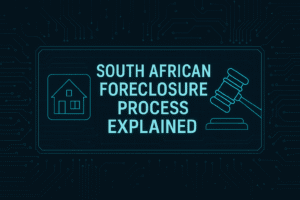Understanding Mortgage Debt Consolidation: A Comprehensive Guide
In the complex world of personal finance, managing debt can often feel overwhelming. For many homeowners, mortgage debt consolidation can be a valuable tool in simplifying and reducing their overall financial burden. In this blog post, we will delve into what mortgage debt consolidation is, how it works, its benefits, potential drawbacks, and steps to consider if you’re thinking about pursuing this option.
What is Mortgage Debt Consolidation?
Mortgage debt consolidation involves combining multiple debts into a single loan, which is typically secured by the equity in your home. This process can include consolidating various forms of debt, such as credit card balances, personal loans, and other unsecured debts, into a new mortgage or a second mortgage. The goal is to streamline your payments, potentially reduce your interest rate, and make your debt more manageable.
How Does Mortgage Debt Consolidation Work?
The process of mortgage debt consolidation generally follows these steps:
1. Assessment of Current Debt: The first step is to evaluate all existing debts. This includes understanding the total amount owed, interest rates, and monthly payments.
2. Determine Equity in Your Home: The amount of equity you have in your home plays a crucial role in mortgage debt consolidation. Equity is the difference between your home’s market value and the remaining balance on your mortgage. Lenders typically allow you to borrow against this equity.
3. Shop for a New Loan: Homeowners looking to consolidate their debts will need to research various lenders to find favorable terms. This may include lower interest rates, longer repayment periods, or other incentives.
4. Application Process: Once a lender is selected, you’ll need to gather financial documentation (proof of income, credit history, etc.) and formally apply for the loan.
5. Pay Off Existing Debts: If approved, the new mortgage funds will be used to pay off existing debts, and you will begin making payments on the consolidated loan.
The Best Mortgage Debt Consolidation Consolidation services in South Africa
Benefits of Mortgage Debt Consolidation
1. Lower Interest Rates
One of the most significant advantages of mortgage debt consolidation is the potential for lower interest rates. Mortgages typically offer lower rates compared to unsecured debts, such as credit cards. By consolidating, homeowners may save money on interest payments over time.
2. Simplified Payments
Instead of juggling multiple monthly payments with varying due dates, consolidating debt into a single mortgage means just one payment. This simplification can reduce stress and help you maintain a clearer financial picture.
3. Potentially Lower Monthly Payments
Consolidating debts often results in lower monthly payments. By extending the loan term, you may reduce the amount owed each month, making it easier to manage your budget.
4. Improved Credit Score
By paying off high-interest debts with your consolidation loan, you can potentially improve your credit score. This is because your credit utilization ratio (the amount of credit used compared to the total available credit) will decrease, positively affecting your score.
5. Tax Benefits
In some cases, mortgage interest can be tax-deductible. While this benefit may not apply to all homeowners, it’s worth consulting with a tax professional to understand your specific situation.
Potential Drawbacks of Mortgage Debt Consolidation
While mortgage debt consolidation can offer numerous benefits, it’s not without its drawbacks. Here are a few potential downsides to consider:
1. Risk of Foreclosure
Since mortgage debt consolidation typically involves securing the loan against your home, failing to make payments could lead to foreclosure. This is a significant risk that homeowners must weigh carefully.
2. Extended Loan Terms
While extending the loan term can lower monthly payments, it may also mean paying more in interest over the life of the loan. Homeowners should carefully calculate the total cost of the new loan.
3. Fees and Closing Costs
Consolidating your mortgage may come with various fees, including closing costs, appraisal fees, and other associated expenses. It’s essential to factor these costs into your decision-making process.
4. Not a Solution for Poor Spending Habits
Mortgage debt consolidation is not a cure-all for financial problems. If spending habits do not change, homeowners may find themselves in a cycle of debt once again, potentially leading to more financial strain.
Steps to Consider Before Pursuing Mortgage Debt Consolidation
1. Evaluate Your Financial Situation: Take a hard look at your finances to determine if consolidation is the right choice. Consider creating a budget to identify areas where you can cut expenses and free up cash flow.
2. Consult with a Financial Advisor: Before making any decisions, it’s wise to consult with a financial advisor or mortgage professional. They can help you understand your options and guide you through the process.
3. Research Lenders: Take the time to shop around and compare lenders. Look for those that offer favorable rates and terms, as well as positive customer reviews.
4. Understand the Terms: Ensure you fully understand the terms of the new mortgage, including interest rates, repayment periods, and any potential penalties for early repayment.
5. Plan for the Future: Consider how mortgage debt consolidation fits into your long-term financial goals. Having a clear plan will help you stay on track and avoid falling back into debt.
Conclusion
Mortgage debt consolidation can be an effective strategy for homeowners looking to manage their debt and simplify their financial lives. While it offers several advantages, it’s essential to approach it with caution and a thorough understanding of the potential risks and rewards. By carefully evaluating your financial situation and seeking professional guidance, you can make informed decisions that lead to a more secure financial future. Whether you’re overwhelmed with debt or simply looking to streamline your payments, mortgage debt consolidation may be a viable option worth exploring.



